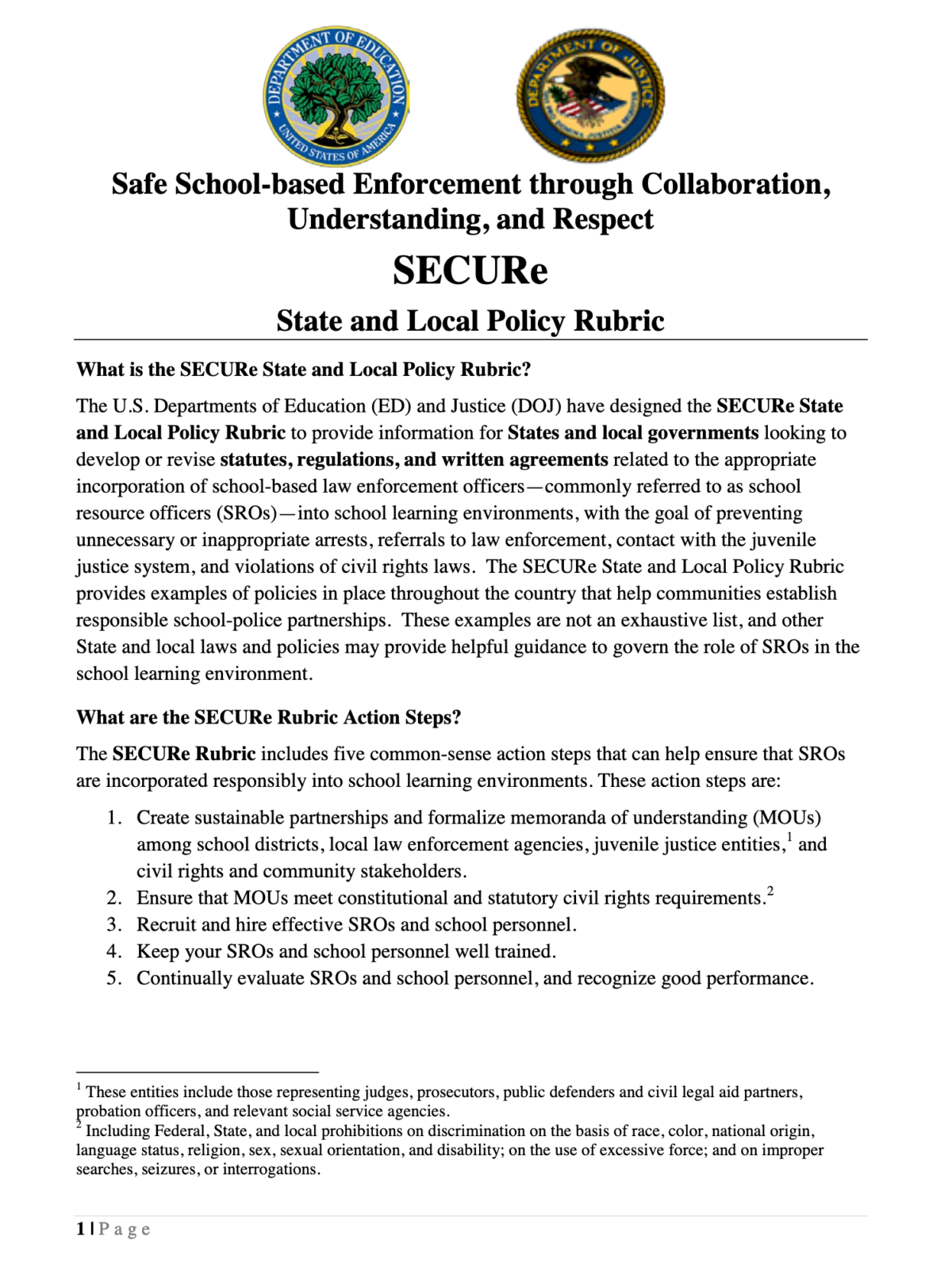Federal Govt. Releases Guidance on Police in Schools, But Solutions Should Go Further to Call for More Counselors Not Police

Today, the U.S. Departments of Justice and Education released the “Safe School-based Enforcement through Collaboration, Understanding, and Respect ‘SECURe’ State and Local Policy Rubric,” providing recommendations for the role of police in schools.
The Dignity in Schools Campaign (DSC) supports aspects of the recommendations, including language recommending that policies and practices should explicitly articulate that School Resource Officers (SROs) “should not administer discipline in schools.” However, the guidance should go further to promote substantive solutions and alternatives to police presence in schools, such as redirecting funding from school police towards more counselors, peace builders and positive discipline.
According to the “Dear Colleague” letter from the Department of Education, “The SECURe Rubrics are premised on the notion that partnerships between school districts, law enforcement agencies, and juvenile justice entities should be formalized through locally developed memoranda of understanding (MOUs) among these parties. Additionally, the SECURe Rubrics can support school safety and other SRO-related policies and practices that are informed by educators, families, students, and community and civil rights stakeholders; are updated regularly; and explicitly articulate that SROs should ensure safety and security but should not administer discipline in schools.”
While we agree with the recommendation to establish MOUs between school districts and police departments, we feel that continuing to fund SRO programs in schools does not create safer school climates. Communities across the country have been actively organizing for decades to push back against the policing of schools and demand real action towards creating safer school climates.
DSC member, Harold Jordan of the ACLU of Pennsylvania, states that, “Without additional measures, students will not be fully protected from inappropriate and abusive behavior by police in schools.”
The Departments of Justice and Education recommend that officers working in schools “receive training regarding youth development,” including “Listing all required and ongoing trainings, and supervisory structures, for SROs and staff, with clarity regarding agency responsibility for each component” and “clarifying the processes for schools’ right to request removal or re-assignment of an SRO.”
While we agree that any SROs or law enforcement that come into contact with schools should receive proper youth development training, the real solution is for school districts to invest in alternatives to SROs, allocating funds towards hiring and training restorative justice practitioners, counselors, social workers and peace builders.
As a coalition of over 100 organizations in 27 states, comprised of students and parents directly implicated by harsh school discipline practices and the policing of our schools, the DSC urges the Departments of Education and Justice to ensure that every young person has access to a quality education where they can learn and thrive without the excessive presence of police in schools.
